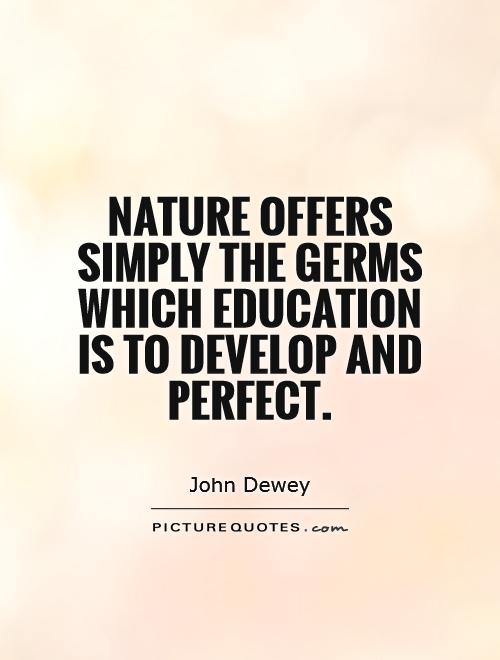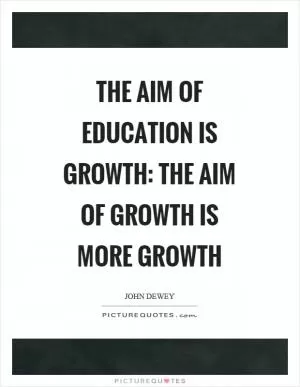Nature offers simply the germs which education is to develop and perfect

Nature offers simply the germs which education is to develop and perfect
John Dewey, a prominent American philosopher, psychologist, and educational reformer, believed that education should be a process of growth and development that is closely tied to nature. In his view, nature provides the raw materials or "germs" for education to cultivate and refine. Dewey's philosophy of education emphasizes the importance of experiential learning, critical thinking, and problem-solving skills in order to prepare individuals to actively participate in a democratic society.According to Dewey, nature offers a wealth of experiences, challenges, and opportunities for learning and growth. These experiences serve as the foundation upon which education can build and expand. Just as a seed contains the potential to grow into a mature plant, so too does each individual possess the potential for intellectual, emotional, and moral development. Education, then, acts as the nurturing force that helps individuals realize their full potential and become active, engaged members of society.
Dewey believed that education should be student-centered, meaning that it should be tailored to the needs, interests, and abilities of each individual learner. By drawing on the natural inclinations and curiosities of students, educators can create meaningful and relevant learning experiences that foster intellectual growth and personal development. Rather than imposing a rigid curriculum or set of standards, Dewey advocated for a more flexible and dynamic approach to education that allows students to explore, experiment, and discover for themselves.












 Friendship Quotes
Friendship Quotes Love Quotes
Love Quotes Life Quotes
Life Quotes Funny Quotes
Funny Quotes Motivational Quotes
Motivational Quotes Inspirational Quotes
Inspirational Quotes